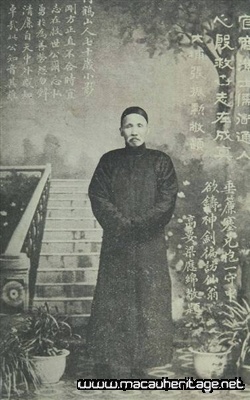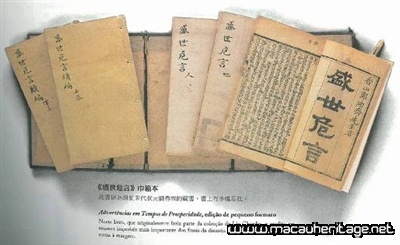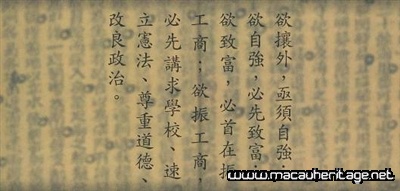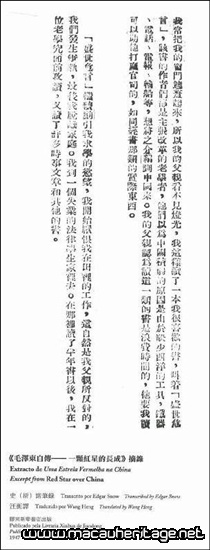
Zheng Guanying (1842-1921) was a native of Xiangshan of Guangdong province (now Yongmo, Sanxiang, Zhongshan City). His family had lived in Macao for generations. At the age of sixteen, he went to Shanghai for business where he stayed for around 20 years. Although Zheng worked in a foreign company, he was always sensitive to the current political affairs of his country, in which he shared passion and concerns. His interest in western learning gradually influenced him in formulating theories about “Saving the nation by enriching the nation”.

In late 1886, Zheng returned to his Macao residence (the Mandarin’s House) located on Travessa de Antonio da Silva. There Zheng collected his thoughts and wrote the acclaimed masterpiece Shengshi Weiyan (Words of Warning in Times of Prosperity).

In the book, Zheng advocates “a country must create wealth to become strong; and wealth comes from encouraging economic and industrial developments, putting emphasis in education, quicken legislation, respect ethics and political reformation”. These ideas had influential impacts on Emperor Guangxu, Kang Youwei, Liang Qichao, Sun Yat-Sen and even Mao Zedong.

Mao Zedong once said: “… I have read a book named Shengshi Weiyan which I like a lot. Its authors were all old scholars who advocated reform. … Shengshi Weiyan continues to drive my desire to pursue knowledge …”.
